EXPLORING CARE: A CONVERSATION BETWEEN SEBASTIÁN DE LA CUESTA GORMAZ AND ANNA GIRIBET I ARGILÉS
Introduction with four hands
Why the need to talk about care? At what point have we come to realise that? Why is this theme surfacing now? We are Sebastián de la Cuesta, director of Espacio Checoslovaquia in Chile, and Anna Giribet I Argilès, artistic director of FiraTàrrega in Spain. We met in a complex work meeting where common care through listening, empathy, and gaze brought us together. Together, we will talk to you from this place, from the practice and experience linked to our geographical and professional contexts. We are inviting you to experience this text as a dialogue between us.

Sebastián
The UNESCO Universal Declaration on Cultural Diversity reaffirms that culture is to be considered as the set of distinctive spiritual and material, intellectual, and emotional features of society or a social group, encompassing, in addition to art and literature, ways of life, ways of living together, value systems, traditions, and beliefs. I am writing from Chile, a particularly singular country, where we are constantly searching for a course that seems to be going astray day by day. A distant corner where dreams do not collapse, but are not achieved either, a place where justice is only for some. However, our motivation at Espacio Checoeslovaquia is to raise our voices and provoke changes without fear, with nothing to lose, strengthening artistic creation, spaces of coexistence, respect for the processes, and collaboration between institutions, creators, and people who feel safe and protected, exercising mutual, group, and permanent care. A space where we value the performing arts worker as the most precious treasure we can have as a society. A place where we work daily, so that our territorial community feels valued and respected, but above all, proud of its origin. We are looking for that moment that helps us to identify with someone and to share our feelings; we are simply looking once again for the longed-for action and feeling of empathy. How can I talk about caring for others without thinking about how I would like them to care for me? Where are my references to understand what care is, and how we relate to it, how it is applied or exercised in everyday life? Is care only a personal action, or is it also related to how the self relates to the collective? And that’s when I remember and see my mother, and I return to the questions: where was her care coming from? How was my upbringing with my brother, and does the instinct to care come naturally? How does it materialise? There are many questions, but what I am sure of is that the source of care is simply the expression of love. That space that only happens within oneself and with others, between you and the children, between her and the young people, between us and the arts workers, with the elderly, with dissidents and minorities, and between all of us and the women who have historically carried the burden of always having to know how to do things well, both in parenting and in work. I think it is important to listen to each other, try to understand each other, and try to accept each other — both ourselves and others. Often the important thing is not only what we communicate, but how we communicate it. Empathy is the common ground, the meeting point, where we recognise ourselves as people; imperfect people, where nothing is easy for anyone, especially when we understand the contexts of life and the origin and experiences of each one of us. When we establish trust, good treatment, and empathy, we generate the empowerment of people individually and collectively, thus contributing to participation through a permanent and open dialogue. We begin to 1 Editorial Ara Llibres (2023) build a community in society, in common agreement. An ecosystem where everyone is truly important, where everyone understands their role as fundamental for a global and common functioning that benefits us all from the symbolic and from the mundane. Arts workers, creators, managers, culture amateurs, audiences, and authorities—people at the end of the day—we are all involved in it, generating the much-coveted sustainability of our work, in such a way that allows us to dream of transforming an ideal future into a possible and real future. It is as a whole that we are able to generate changes, to set objectives, to generate a “mystique” that we need and that our jobs have in the essence of their spirit, to generate that space of confidence to advance where it is necessary to visualise it. It is, after all, to have a small certainty within the uncertain world we inhabit, that building and belonging to an ecosystem helps us find the meaning we often need for our lives. We are present people first, which makes us conscious professionals. How easy it is to write it and how difficult it is to put it into practice...
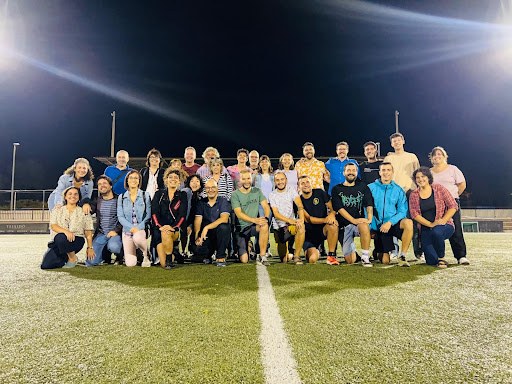
Anna
I recently read the book “Ruralisme” by Vanesa Freixa1 , an artist and critical thinker around the world of rurality. She spent a long time trying to repair problems that were too far out of her reach and looked too little at what was going on around her. She realised that the revolution was about changing things in her immediate environment, re-establishing the relationship between the ecosystem, herself, and her community. We are in a context of escalating global warfare, where human deaths are increasing day by day, and citizen polarisation is becoming more acute. It is necessary, not to say obligatory, to talk about care, to put people back at the centre, and to relearn to listen, dialogue, and negotiate. How can we improve care in our workplaces? I believe that care and listening to the team is basic: saying good morning, having a coffee with them, and asking how they are and how their work is going. Perhaps this may seem irrelevant to some of you, but for me, it is essential, and in these times it is almost revolutionary. I work in an organisation where for the first time in forty years the artistic director is also a mother. How do you manage professional and personal responsibilities at the same time? How to maintain the rigour of your work while simultaneously reconciling it with your family obligations, all the while without dying in the attempt? With a lot of foresight, but above all, with confidence in the team and the ability to delegate part of the responsibilities. And on a personal level, it is essential to have a family tribe to help you; otherwise, it would be practically impossible. Beyond maternity leave, which we still have a long way to go, I am a firm advocate of the fact that people should take care of their personal lives and be able to devote time to their friends, family, and hobbies. All this while considering that the cultural sector is under attack by the FOMO2 phenomenon, provoked by the instrumentalization of a cultivated sense of vocation and enthusiasm within a system that favours precariousness, anxiety, conflict, and dependence for the benefit of hyper-production and competitive speed. We must fight to achieve non-marathon working hours and remember that there is life beyond work! For me, care is also about facilitating connections. In our case, FiraTàrrega is a public service; therefore, our obligation and responsibility is to attend to everyone and make connections possible, many of them through listening — back to listening! How do we listen beyond the team? For me, listening is a work philosophy that enables us to connect with people and discover events, professionals, contexts, and/or artists we have never worked with before, answering emails, attending meetings where you don’t know anyone, provoking you to discover, visiting new spaces, working with public calls, working with otherness, approaching other cultures, understanding them, and respecting difference. The more open you are willing to listen, the more likely new connections will appear. Wajdi Mouawad, the Lebanese-Canadian writer, actor, and theatre director, has said in an interview with the Spanish newspaper El País that “our relationship with humanity is becoming less and less rigorous. The idea of humanity is growing increasingly fragile. Amid this stage, how can we continue to believe in common values that have endured since the dawn of civilization? Values such as mutual help, support, belonging to the group, and the development of a spiritual way of thinking? That is what theatre is for. It provides a way to refuse to play the game of the end of the world, despair, darkness, division, and separation.” I like to end with these words of Wajdi Mouawad, and to think that, if we work on care starting with our immediate environment, we will somehow be recovering some of those common values of humanity.
EMPATHY (RAE3 ) Feeling of identification with something or someone. Ability to identify with someone and share their feelings.
Closing with four hands
We have written this article with four hands and, as we said at the beginning, we have done it from a place of practice, in opposition to theory. We wanted to end with a question aimed at the readers of this article. What do you think you could do to contribute to improving the care within your network of relations? We would invite you to develop together a common ecosystem. A horizontal and socially meaningful community where people are the value and heritage. That is the most subversive act we could develop in today’s world. To go against the individualistic impulse: we consider it an expression of love, and it is our mission to always hold it high.
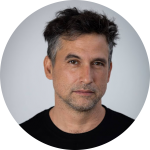
Sebastián de la Cuesta Gormaz is an actor, dancer and performer with more than 20 years of experience in national and international performing arts. He has worked with renowned directors and choreographers. Alongside Rodrigo Leal, he is the director and founder of the Creation and Residency Centre Checoeslovaquia, based in Santiago, an innovative space that supports the creative processes in performing arts nationally in Chile.
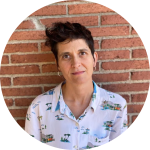
Anna Giribet i Argilés holds a degree in Economics (University of Barcelona), as well as a Master’s and a Postgraduate degree in Cultural Management (UOC – University Pompeu Fabra). From 2011 to 2018, she was the assistant programmer for the artistic department at FiraTàrrega - International Performing Arts Market, where she is serving as the artistic director since 2019. Between 2015 and 2017, she was the coordinator of the master’s degree in Street Arts Creation at UdL University in Catalonia, Spain.



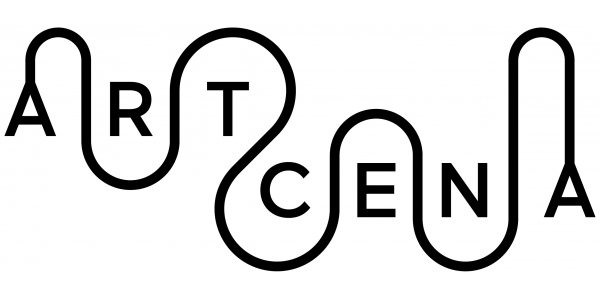

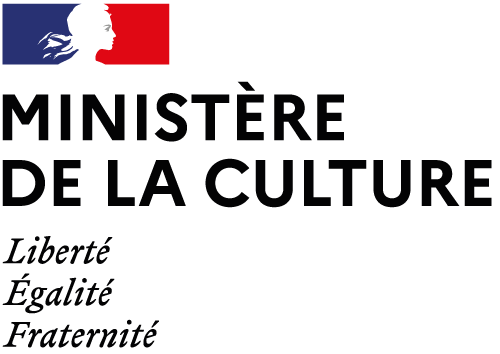
write us: infocircostrada@artcena.fr